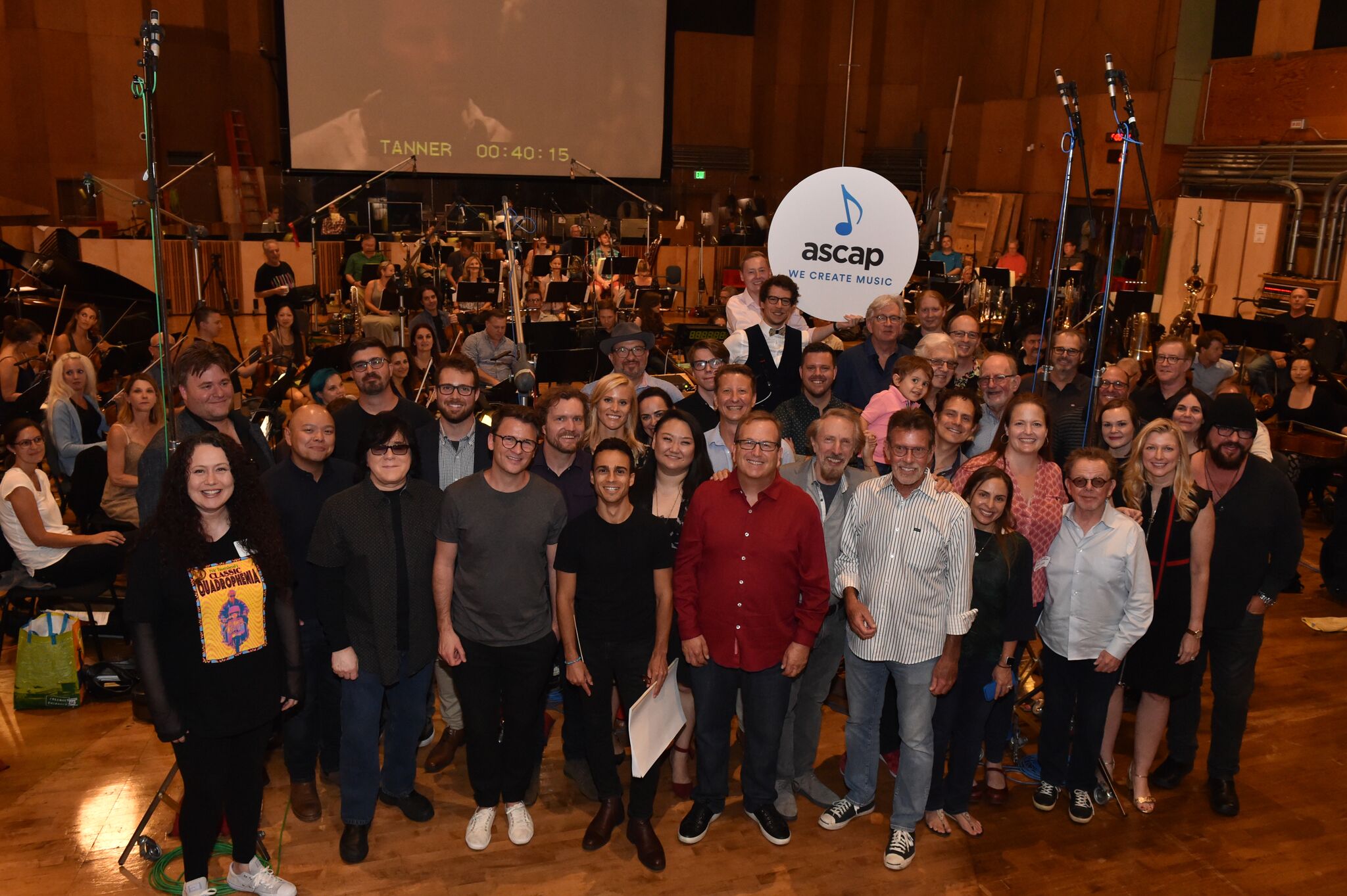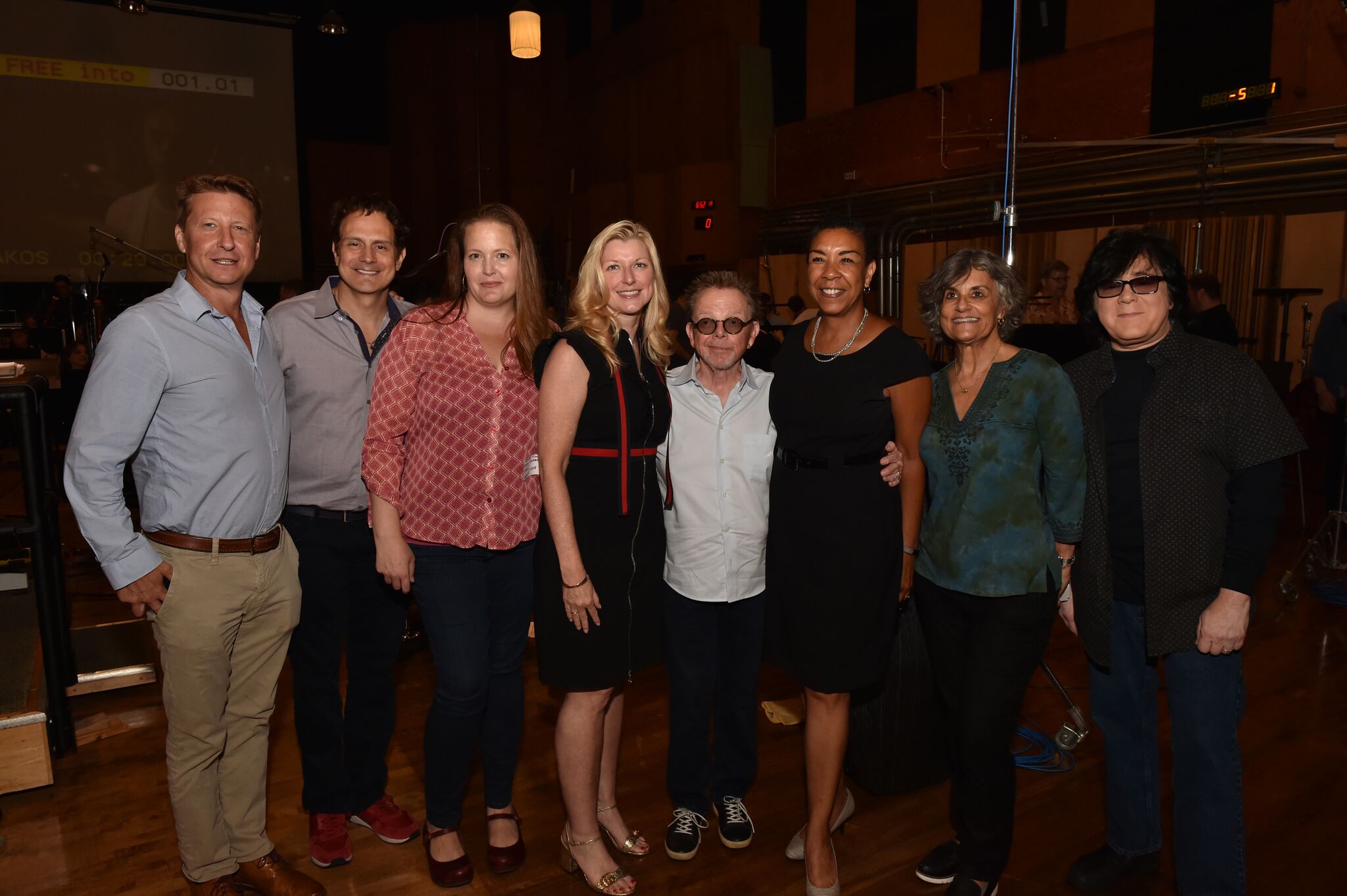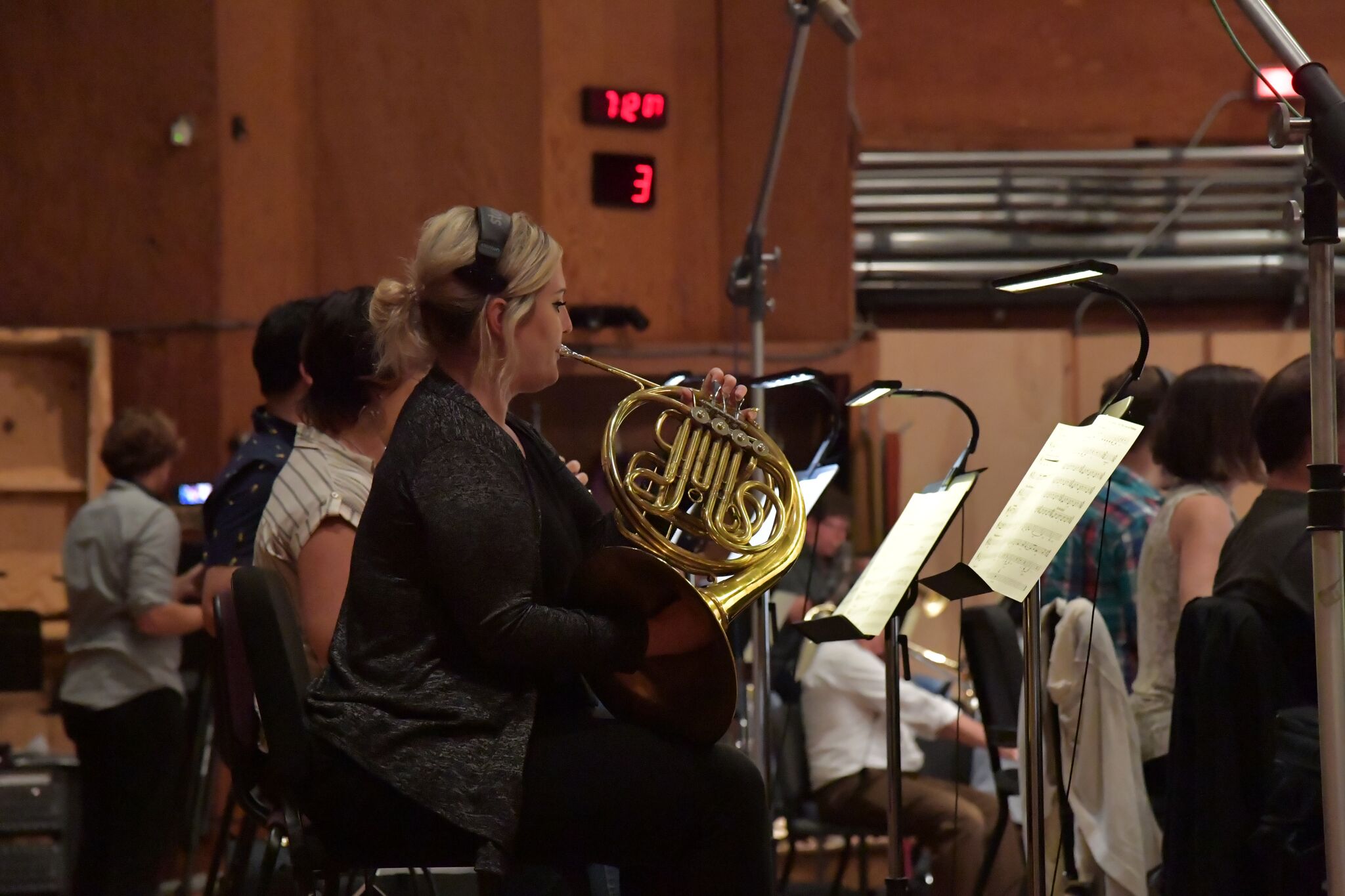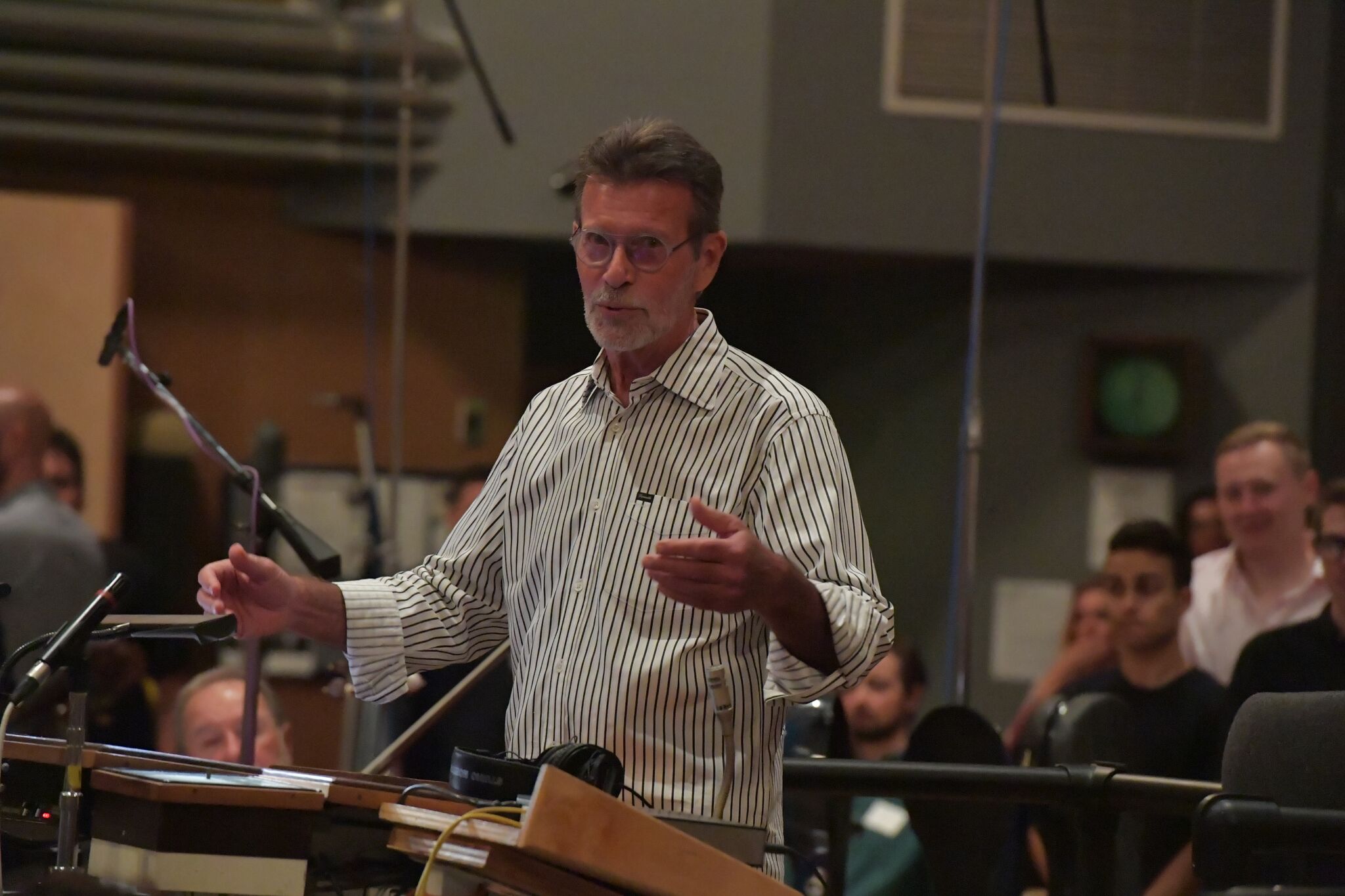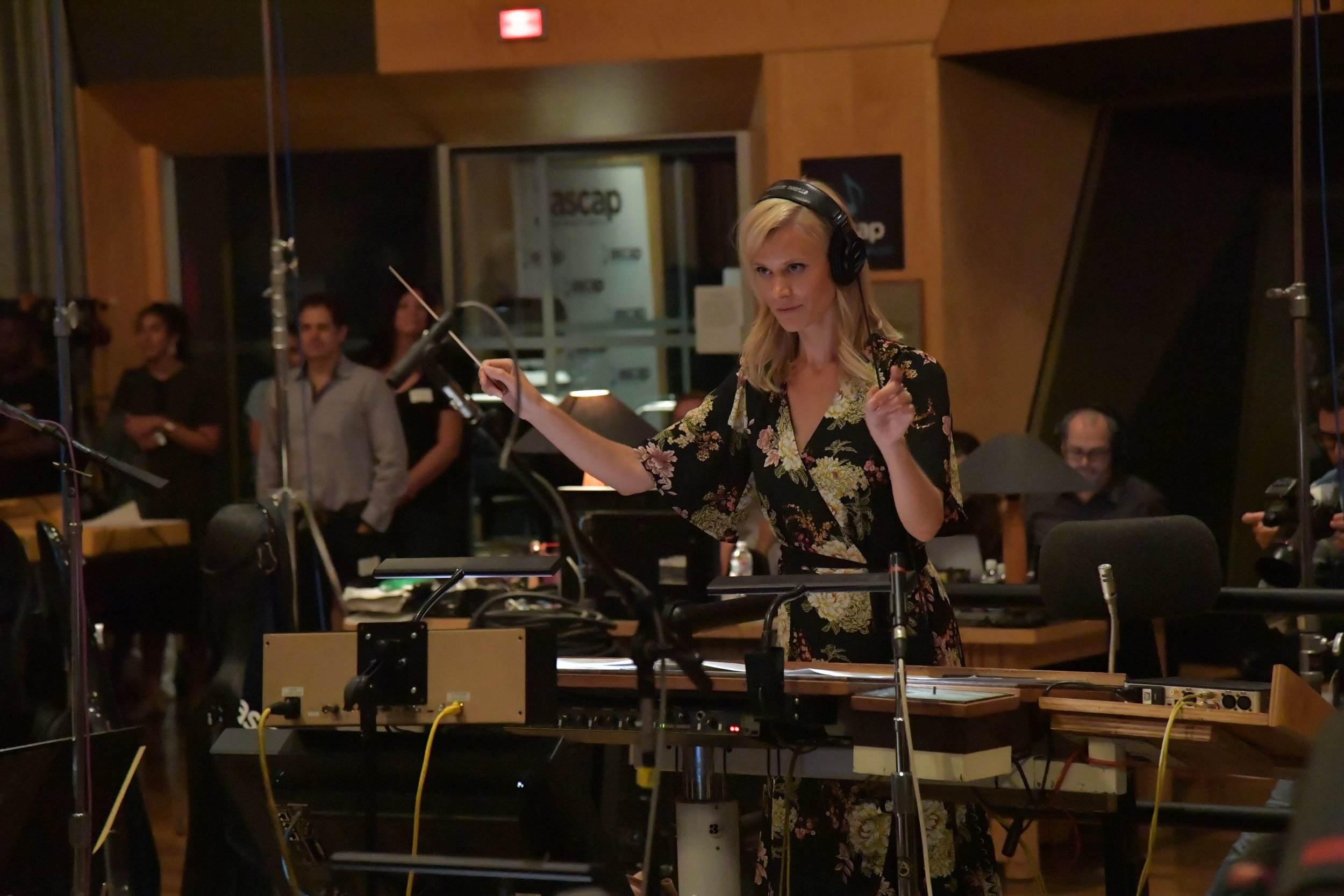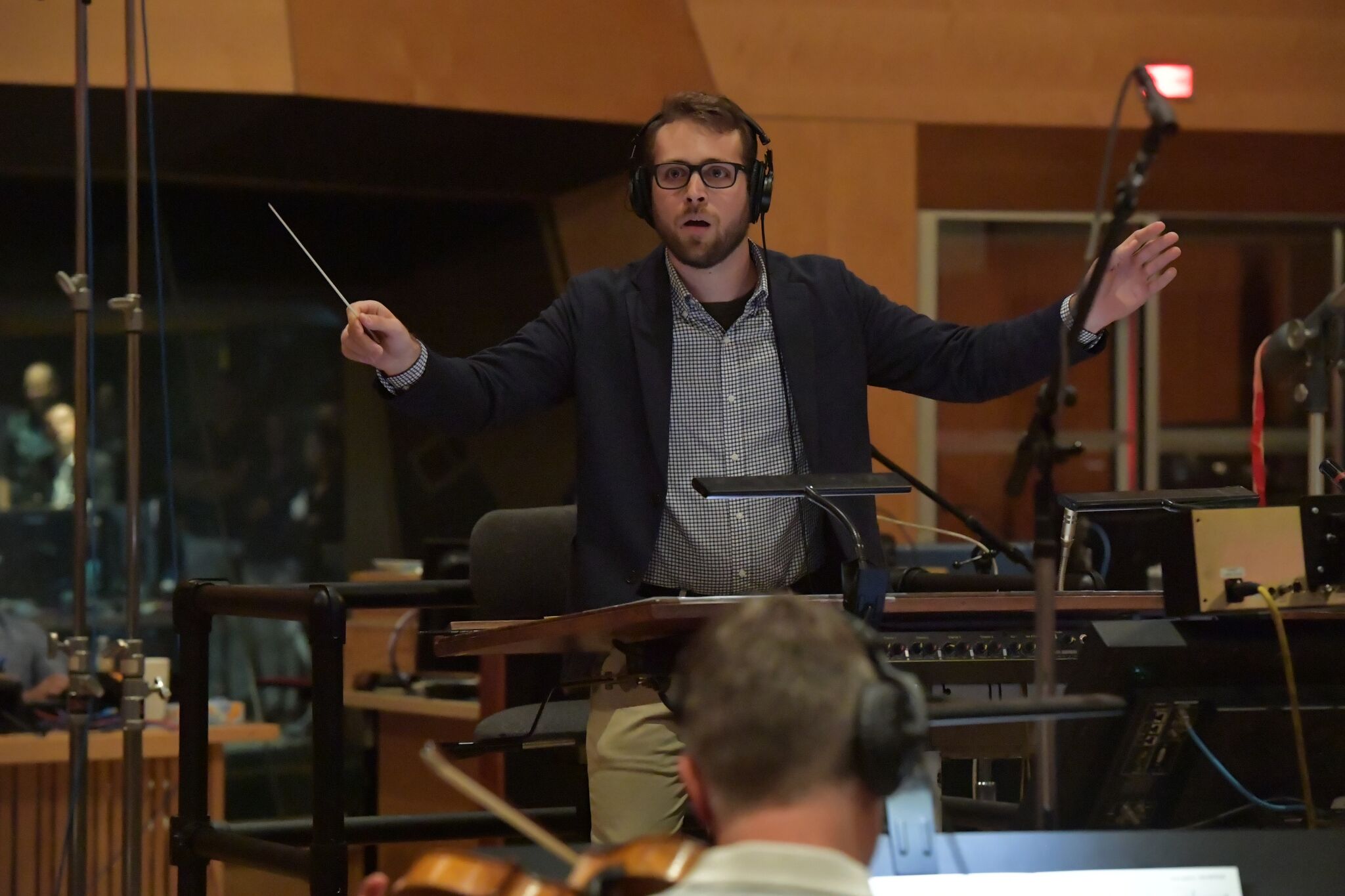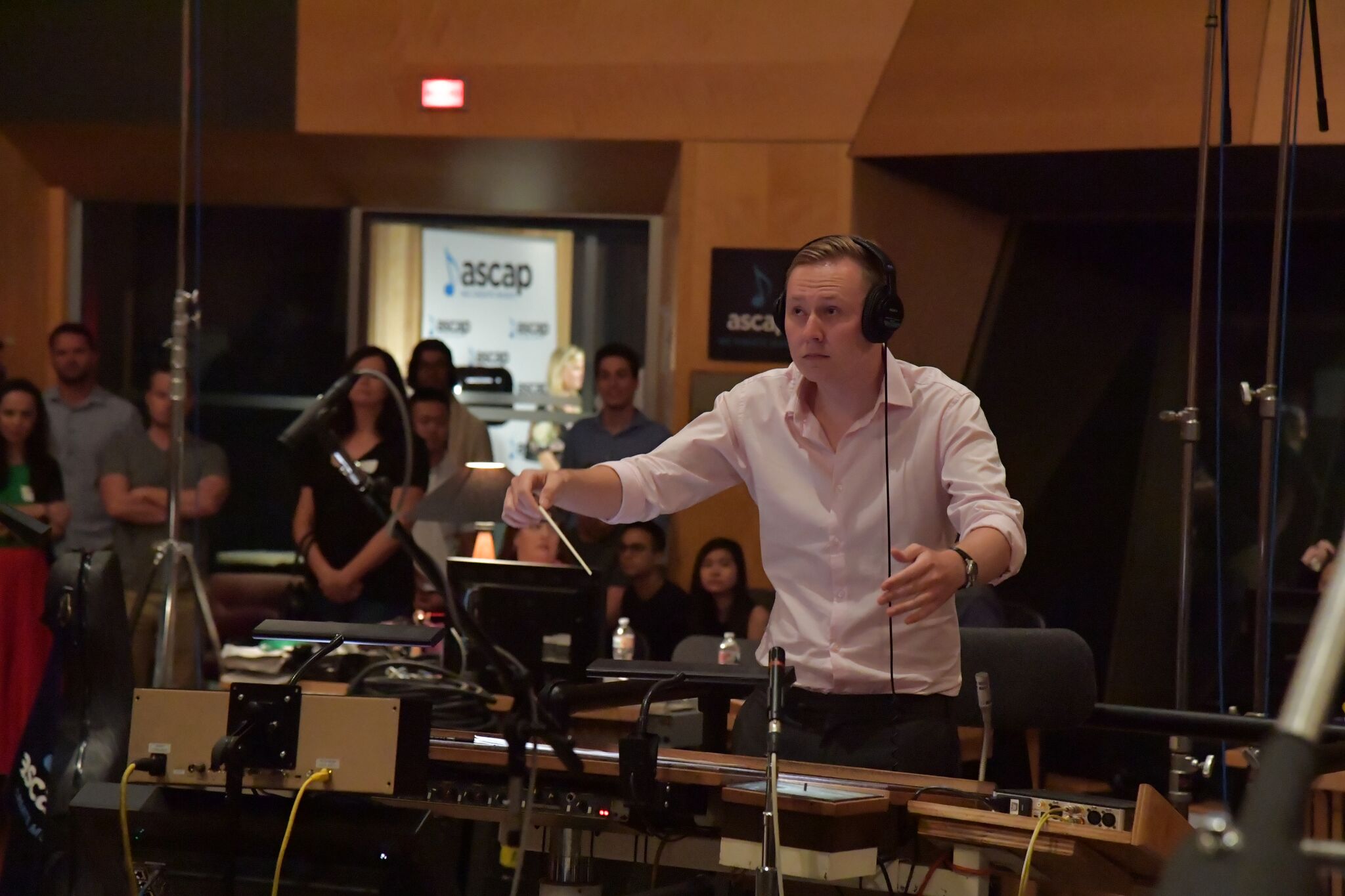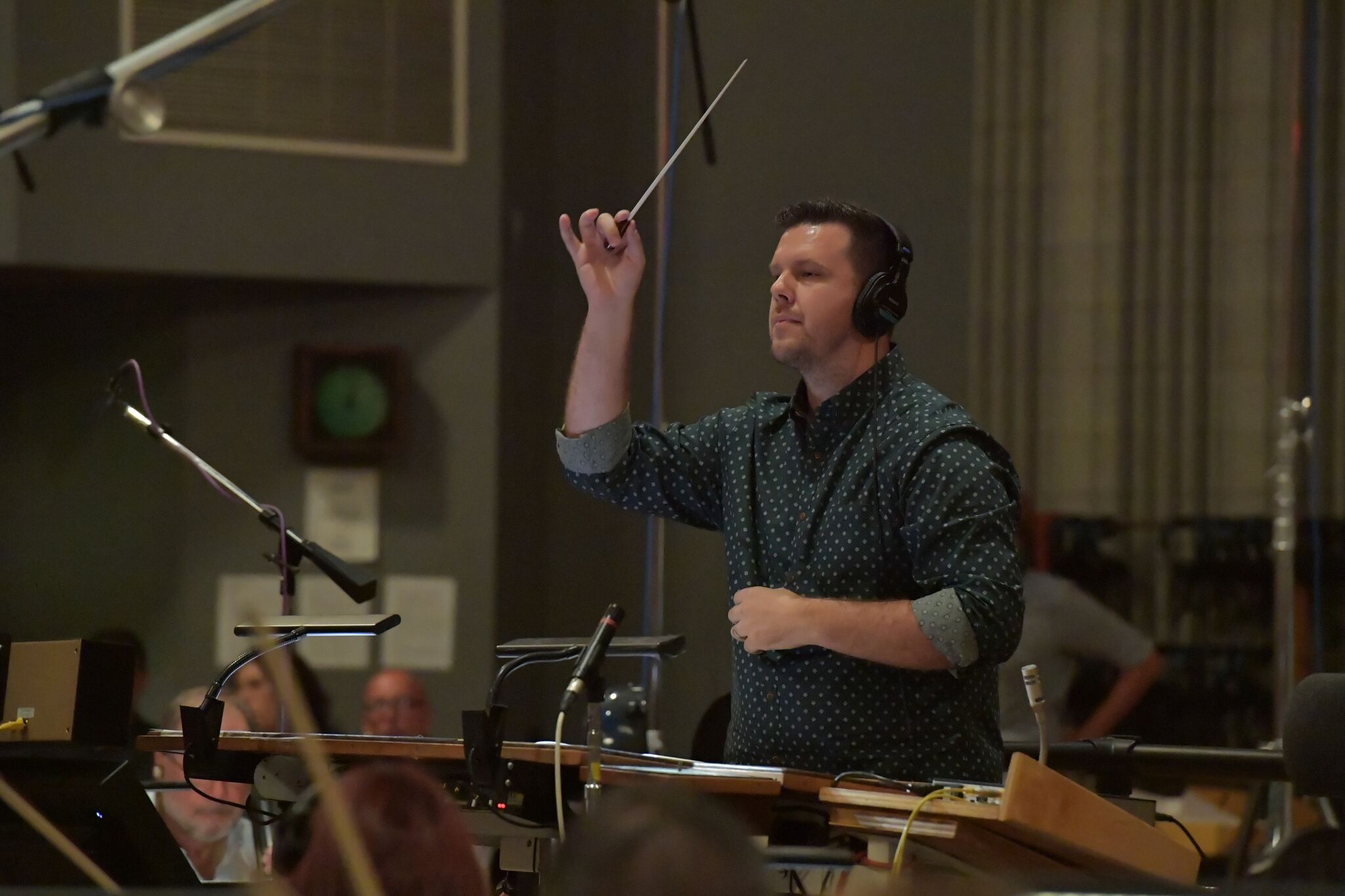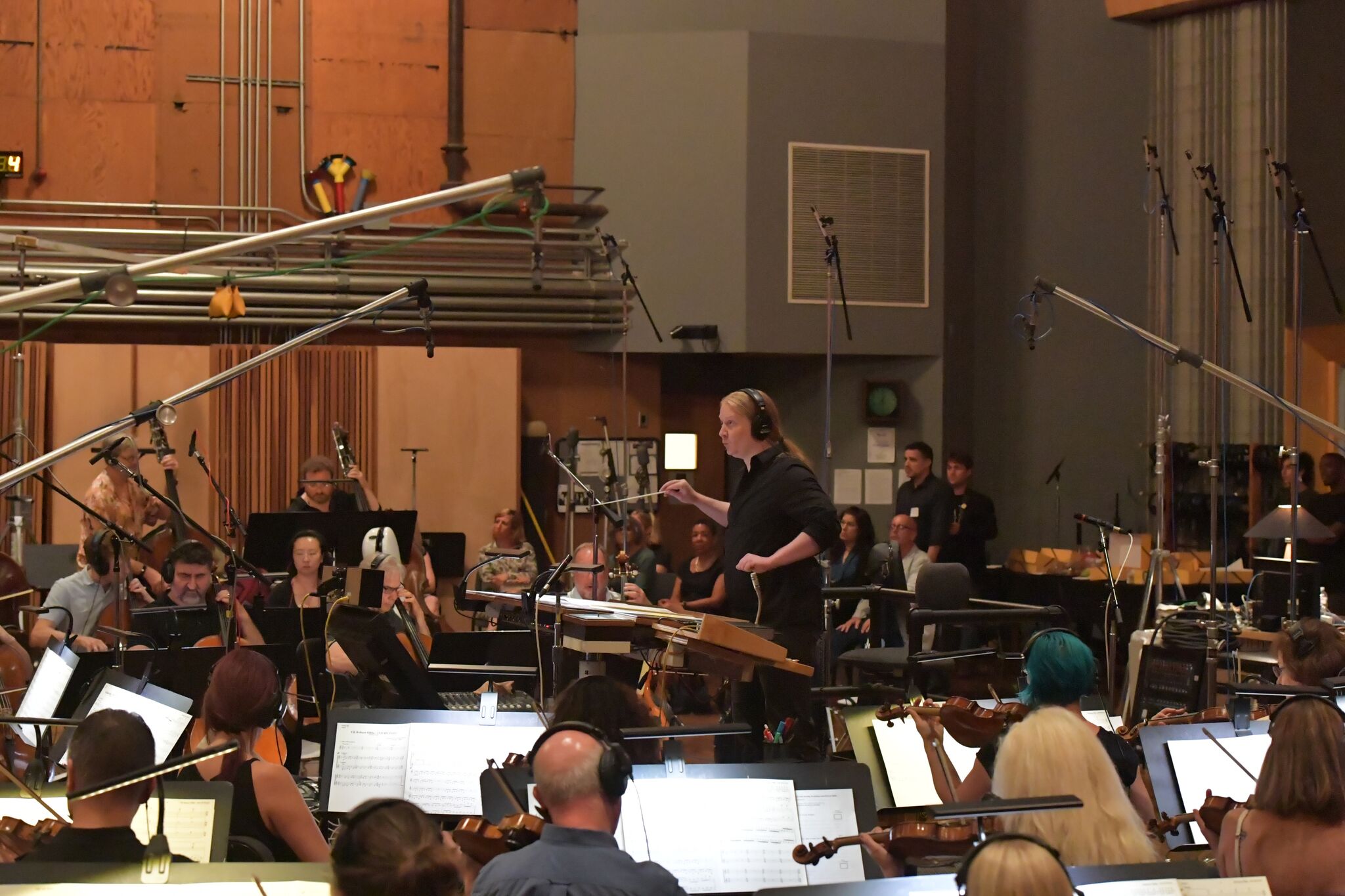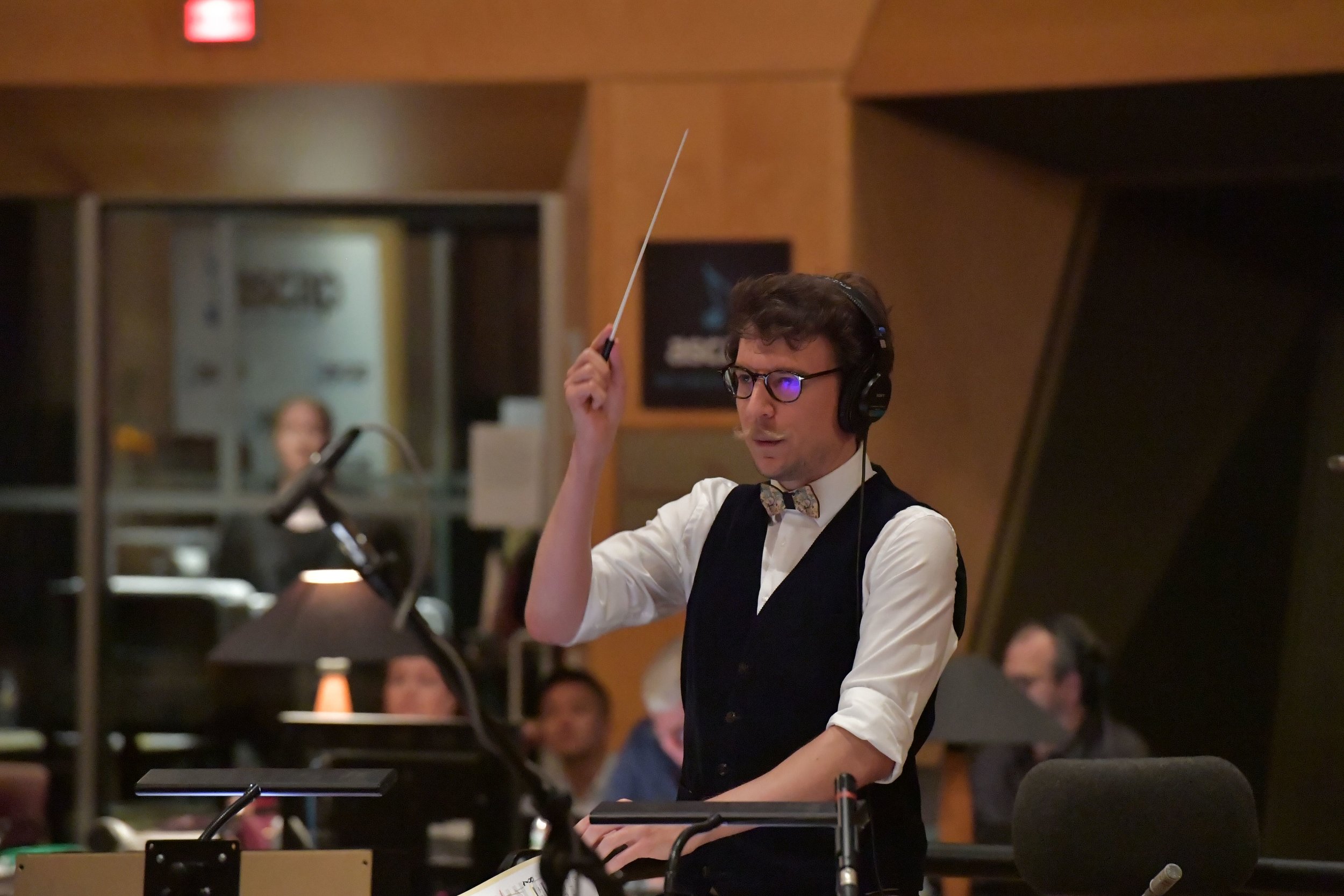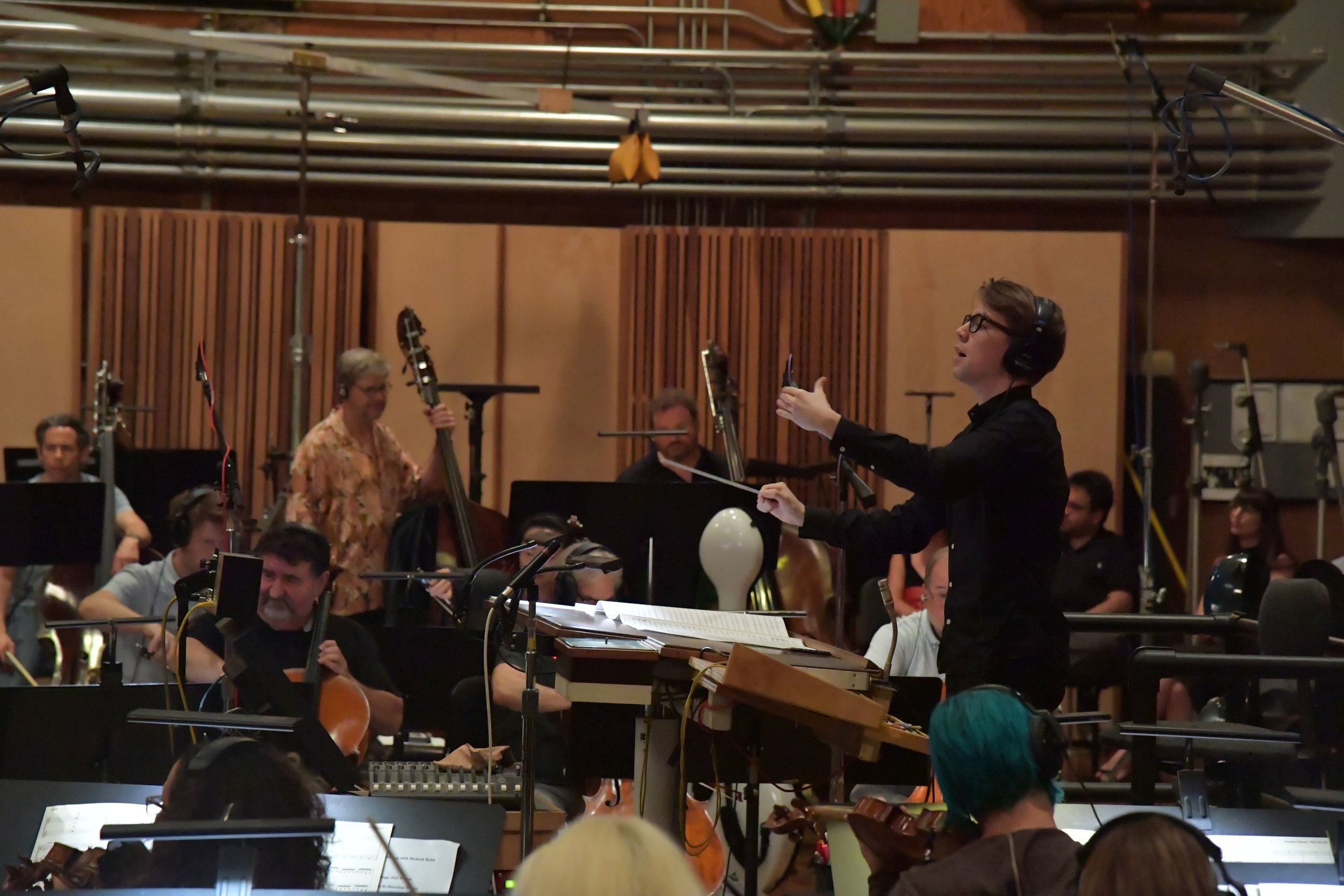30th Anniversary ASCAP Film Scoring Workshop
Last week, ASCAP (American Society of Composers, Authors, and Publishers) invited Pop Disciple to take a behind the scenes tour of The ASCAP Film Scoring Workshop, an exclusive, interactive four-week program designed to support and empower rising composers. For 30 historic years, the workshop has creatively nurtured and invested in future generations of talent in film music. Shawn LeMone, SVP Membership of Film & TV at ASCAP describes the program as "a true springboard for talented composers in the crucial early stages of their careers."
Vetted by a committee of notable ASCAP composers, 12 lucky participants are selected from a pool of nearly 400 applicants to engage in a month long intensive. Thoughtfully produced by ASCAP Film & TV executives, Michael Todd and Jennifer Harmon, the workshop offers a wealth of opportunities to build entertainment industry contacts, receive mentorship from accomplished names in film music, and the opportunity for each participant to conduct their original music supported by a stunning 64-piece orchestra on the prestigious Newman Scoring Stage at Fox Studios. For the past 21 years, Emmy award-winning composer, Richard Bellis has led the festivities and offered tutelage to the participants every summer. Over the years, Richard has presented master sessions for the selected composers, offering invaluable perspectives and applied strategies they would rarely be exposed to within the construct of a traditional music education.
Within the dynamic schedule of specialized activities, the participants visited Tom Holkenberg, best known as Junkie XL, composer of Mad Max Fury Road and a relatively new member of ASCAP, to spend a day in his studio and dive into the nuts and bolts of his complex creative process. He spoke at length about his personal journey, transitioning from a career in EDM to the world of film music. Another particularly memorable event took place at Hans Zimmer's Remote Control Production headquarters in Santa Monica. Composers, Benjamin Wallfisch (Blade Runner, I.T.) and Matthew Margeson (Kingsman: The Golden Circle, Truth or Dare) led the session, walking participants through various scenes from movies they've scored and emphasizing the importance of storytelling through music.
Over the course of 30 years, the program has launched and fostered the careers of many composing luminaries including Sherri Chung (Riverdale, Blindspot); Cliff Martinez (Drive, Traffic); Trevor Morris (Olympus Has Fallen, Vikings); Didier Lean-Rachou (The Deadliest Catch, Sex and the City) and Joseph Trapanese (The Greatest Showman, Straight Outta Compton) among others. Michael Bearden, ASCAP Film Scoring Workshop alum and musical director to Lady Gaga and the late great Michael Jackson, reflected on his biggest lesson learned, citing "The experience informed me, as a musician, about the importance of relationships, especially in Hollywood. Composers tend to be hermits, working in their studios and their homes...When I did the ASCAP Film Scoring Workshop, they really emphasized that you needed to get up, go out, and press the flesh even if you didn't feel like going to the party or event. They really impressed upon us that it's a social business. That's how it informed me and my career. I never forgot that and I've been doing it ever since."
IN CONVERSATION
WITH THE MENTOR
RICHARD BELLIS
Source: ASCAP
Can you tell us about how you became involved with The ASCAP Film Scoring Workshop?
This is my 21st year. As you know, it was started 30 years ago. Fred Karlin did it for eight years, then we took a year off. He moved out of town and I began right after that.
What motivated you to serve as a mentor for composers on the rise? What lessons do you deem most valuable for someone in the early stages of their career in film music?
A friend of mine calls it "the service gene". I've been on the board of Governors for the Television Academy. I've been the President of the SCL, I'm on the board of ASCAP, and I taught at USC in the film schooling program for 13, 14 years. The overarching reason for this is wanting to try maintain and elevate the profession while it's still a profession.
I've found that through teaching, it purges a lot of information that has accumulated over the years from working in this business. I like to take a little bit of a different approach than most courses. I talk about the non-musical aspects of being a film composer. My little signature in my e-mail says, "Creating music that sounds like film music is different from being a film composer." Today, it's very easy to buy samples and use apps that sounds just like film music, but there is an art to servicing a film, servicing a filmmaker, especially today. The interpersonal skills are more important than the music. Everybody makes good music, so it's about being able to diagnose a scene, being able to question the director to get the dramatic information you need, being able to disagree with a director in such a way that you become the music expert, not a servant. When we have so many new people entering the field, the idea is to not make any waves, just go along with. That, by default, makes the director the music expert because they're going to fill the void. If you create a void, they're going to fill it even if they may not be qualified to. These are the kinds of things that are inherent to A-list film composers. What they know and what they do is really seldom taught.
I had a guy in one of my lectures in Norway ask, "So, what do you when they tell you they want Star Wars and they've got $5,000?". I asked him what he said. There was a long silence and he said, "I guess I said I'd figure out a way to do it." So, I said, "Well, that's the servant talking. The expert would have said, "Listen, I could do that, but you're not going to like it because for one, it's not budget appropriate, and second of all, anybody who sees your film is going to say it sounds just like Star Wars and it will take them out of your film". It's all of these things we talk about.
MUSINGS FROM THE
EXECUTIVE PRODUCERS
MICHAEL TODD
Source: ASCAP
AVP, Film & TV Music / Visual Media, ASCAP
From your perspective, what are the most significant ways the ASCAP Film Scoring Workshop has evolved over time?
Our process for screening and selecting qualified composer candidates has improved with technology and access to social media/websites. Also, as the program's success has grown, so has the support from our industry along with our past alumni.
It's become a big family over the years and a wonderful way to keep the creative community of composers together supporting each other in a sometimes challenging marketplace.
What has been your personal highlight from the 30th anniversary?
A personal highlight of the 30th anniversary is reflecting back and being reminded of the positive influence and impact this workshop has had on each of the deserved talents who get in the program (past and present). It's especially rewarding to witness the various successes as everyone continues to build their careers.
JENNIFER HARMON
Source: ASCAP
Senior Director of Creative Services, Visual Media, ASCAP
From your perspective, what are the most significant ways the ASCAP Film Scoring Workshop has evolved over time?
The core tradition of the workshop has remained the same for all 30 years, to provide the composers with access to the very best the industry has to offer from agents to lawyers to studio visits with A-list composers to a recording session with our world class orchestra. The evolution is found in the details. The digital age has modernized and streamlined every step of the process from the workshop application through to the recording session. Our orchestra has grown over the years from 40 to now 64 musicians. The international diversity of our composers has also broadened over the years, with this year's group originating in seven different countries.
What has been your personal highlight from the 30th anniversary?
The highlight for me is always the recording session. I love watching the elation that comes as they step down from the podium and realize they have just conducted a successful session with the best musicians in the world. Those moments never get old.
INSIGHTS FROM
COMPOSERS ON THE RISE
ON HER ENTRANCE INTO FILM MUSIC
"I was nearing the end of my bachelor's degree in Media Music at BYU and took a film scoring course during my last semester because it sounded interesting. As a visual artist, I fell in love with the pairing of music to picture, and absolutely loved the creative process. For our final project, we recorded a cue with a small orchestra. As I was on the podium conducting, a wave of pure excitement and happiness like I'd never had before came over me and I knew without a doubt that this is what I wanted to do for the rest of my life. It was Thomas Newman's scores to American Beauty and Finding Nemo that lit the film music fire within me. I was deeply touched by those scores during a dark time in my life and wanted to be a part of creating it in any way I could.
I've always been inspired by John Williams and his incredible themes. Jurassic Park was a significant movie during my childhood and his music for that film was so incredibly influential. I have always wanted to include memorable thematic material in every score that I write because of the profound effect his music has had on me. My greatest mentor has undoubtedly been James Newton Howard. I was beyond privileged to be privately mentored by him through my time in the SMPTV (Scoring for Motion Pictures and Television) program at USC. Upon graduating, I continued to develop my relationship with him and interned on Mockingjay: Part 2 and Concussion and learned extremely valuable lessons during that time. I owe much of my pivotal growth to his mentorship."
ON CURRENT TRENDS IN COMPOSING
"In regards to emerging trends in film music, I definitely see a drift towards electronic music and a departure from pure orchestral. I do see a hybrid of the two mediums becoming a mainstream art form and feel obligated to continue in that direction while keeping pure orchestral music alive. I also see the importance of creating original sounds that are stemmed from conceptual analysis per project, and know that it will be necessary for me to be original in this way to be successful as an emerging voice in the industry.
Themes are also becoming unpopular, but I am a strong believer in the necessity of themes and how they can be used to really propel a story and character development. I love utilizing the orchestra and my strengths lie there, so I will continue moving forward and encourage all of the filmmakers I work with to use the orchestra if possible. I also love electronic music and will definitely write scores that include synth elements as they can add so much to the tone and mood."
ON HER SECRET TALENT
"I'm actually a professional hand model. You've probably seen my hands in commercials, on billboards, and in magazines, and had no idea it was me."
ON HIS PURSUIT OF FILM MUSIC
"When I was in undergrad at Bowling Green State University, I had the opportunity to score an animated short as a part of my senior recital.
After that experience, I was completely hooked on scoring for film or any possible scoring project I could find. When I was at the film scoring program at USC, I was lucky enough to have Laura Karpman as my private instructor. She has been an invaluable mentor, teacher and friend through the start of my career in film music."
ON THE INSPIRATION BEHIND HIS PIECE
"Where the majority of my inspiration came from in this cue was actually from the scene itself. I tried my best to dive into the characters perspectives and to approach it as if I were writing for the entire movie. After receiving my scene from "How To Train Your Dragon 2", I immediately went on a long walk to let the ideas sink in.
My initial goal was to invent a musical language that could handle a multitude of functions but also exist within the context of the whole film. What I came up with were two themes. The first is a melody that could function as a love theme between our two main characters but be fluid enough to shift under the various tones of their conversation. The second, a darker theme for the mysterious adventure that they both embark. I am a huge fan of animation and particularly of this film, so it was a bit of a challenge to find a unique approach, but it was an absolute joy to write this cue."
ON HIS PLACE IN FILM MUSIC
"I think there has been a growing popularity in using synth and found elements as an aesthetic. I think I also fit in to this trend as I also come from a background having studied electroacoustic music. Using ideas culminating from this approach and fusing them with other elements such as a live orchestra can be a great way to forge an incredibly cinematic sound."
ON THE REWARDS OF THE WORKSHOP
"One of the most rewarding parts of the workshop is the friendships you make along the way. It has been such an incredible month long journey to be able to grow with eleven other composers from all over the world and go through the same experiences with these total strangers that I am now happy to call good friends. It was a ton of fun to get to know them and heartening to see the friendships that have formed as a result of the program. The scoring session at the Newman Scoring Stage at Fox Studios was a phenomenal experience It was so much fun to see everyone's cues brought to life after getting to know the other participants but not knowing at all what we were all working on. I will never forget what it was like to be up on the podium surrounded by some of L.A.'s greatest scoring musicians, recording an original cue to one of my favorite films."
ON HOW HE BEGAN COMPOSING
"While I’ve always been interested in film scores, the ASCAP NYU Buddy Baker film scoring program really kick started my pursuit of actually scoring to picture. There, I was familiarized with the key skills needed to do this job, and was mindful of those when I later did a masters degree in composition. My mentor at the time was Professor Hendrik Hofmeyr who helped shape my ability to compose and orchestrate."
ON THE FUTURE OF FILM MUSIC
"As technology becomes more powerful and the composer delves further into the realm of sound designer, I foresee that any ‘sound’ could in-fact be used to tell a story and form an essential part of the final score."
Also, we’ve seen a new sound in film emerging and that is the ‘hyperscore’ - an increase in computational power allows for the creation of a score using many sampled instruments that could in-fact not be replicated by traditional instruments in the real world on a traditional scoring stage. I’ll be interested to see where this ‘hyperscore’ goes and where the acoustic orchestra will fit into this."
ON HIS HIGHLIGHTS FROM THE WORKSHOP
"Amongst the many, many incredible highlights of the program, including Richard's mentorship, Mike and Jen’s phenomenal field trips and lectures and of course, conducting (for the first time ever) my own score on the Newman scoring stage with the most incredibly talented musicians L.A. has to offer, something that really sticks in my mind was visiting Joann Kane’s Glendale library archive and seeing in the flesh some of the original handwritten scores which shaped and inspired me musically to compose in the way that I do, and to pursue this profession. To see and hold the original parts from the 1970's recording session of John Williams score to Star Wars was like holding a priceless piece of history."
ON HIS GREATEST INFLUENCES
"I knew I wanted to score films around the age of 12, I remember seeing Transformers and being blown away by the hybrid score by Steve Jablonsky. Before that, I listened to more classical music, and this hybrid sound was relatively new to me. It introduced me to so many possibilities. The Chronicles of Narnia by Harry Gregson-Williams also sticks out in my memory.
Since then, I have gone through different tastes and studied different scores. I would say the greatest influence would be Erich Korngold. I studied him at university and did a dissertation on him. His sound is so unique, and his orchestration is so fantastic yet his melodies still stick in your memory. He's pretty much the guy who composers like John Williams and Jerry Goldsmith stem from."
ON CURRENT TRENDS IN FILM MUSIC
"Right now, in the film industry, in general, I would say there is a massive nostalgia trend. Working filmmakers today are millennials who grew up with iconic films and now, want to revisit and add their own twist to them. As a result scores are also going that way. With films like Blade Runner and Netflix series like Stranger Things, their scores are very 80's influenced and as a result, much more analog synth based. Some short films I have worked on have also required this kind of sound. I love sound design and these kinds of projects force you to come up with new sounds, which is a challenge but very rewarding when you come up with something different."
ON HIS HIGHLIGHTS FROM THE WORKSHOP
"The scoring session was the best part of the whole experience. It was amazing to work with such incredible players and to be on the podium conducting my own music. My other highlight was spending the whole day with Junkie XL. He was such a great guy and was so welcoming. We got to sit in his studio and watch how he worked. You could learn tons from that guy!"
ON HIS INITIAL ATTRACTION TO FILM MUSIC
"I find the craft of composing and storytelling to be a fascinating endeavor. Ever since I was a child, I was strongly influenced particularly by films with strong scores. Star Wars, Indiana Jones, Batman, Jurassic Park, Nightmare Before Christmas, and James Bond to name a few. I would say a huge influence of mine is John Williams. His music I had heard throughout my entire childhood, and once I got into learning more theory in college, I quickly started to see he was an easy reference for pretty much every concept I was learning at the time."
ON THE INSPIRATION BEHIND HIS PIECE
"I started by thinking about a lot of the styles that I felt would be really prevalent for Cinderella's story. A lot of French impressionistic music, some Russian influence. I drew inspiration from people like Ravel... I completely stumbled on this idea by accident. It is a very climactic sequence. I wrote a theme for Cinderella, a theme for the Prince, and a theme for her stepmother. I was able to tie all those themes together with the same motif for each one. In a weird way, it was like they all lived together. Some of it was planned, some it of it was just lucky discovery."
ON THE REWARDS OF THE WORKSHOP
"There were many rewards. For one, they started us off with a little journal and I made a point to try and get down as much of the information as I could from all the experiences as I imagined the composers and professionals would be unique from year to year. That was a great thing. Now I have a little book of things to reference, maybe 20 years from now."
ON TRENDS IN THE FIELD OF COMPOSING
"I absolutely love this new trend of music being performed live to picture, and how music is kind of giving films a new afterlife, so to speak. I think there's also going to be a growing trend of strong themes, as it gives the film a memorable identity in a musical space as well."
ON HIS INSPIRATIONS AND MENTORS
"I was in high school when Star Wars Phantom Menace came out and I loved it. I ended up buying the soundtrack and fell in love with it. That was the catalyst that got me to want to compose as a career. Some of my greatest influences are just some of the great concert and film composer. Wiliams, Goldsmith, Stravinsky, Wagner, Mahler, Copland, etc.
Some of my mentors have been many different people I've worked with along the way, including Penka Kouneva, Ryan Shore, Andrew List, and more indirectly Brad Dechter and Conrad Pope. And much more recently, Richard Bellis has been a great mentor for me as I've gone through the ASCAP Film Scoring Workshop."
ON CURRENT TRENDS AND HIS PLACE IN FILM MUSIC
"I think some emerging trends are actually quite varied. Anything from analog synths to massive orchestras to just a few live players. I'm very thematic minded and finding newer ways to express that is becoming much more wide and available. There is so much content out there now and finding my musical voice through all of that is only a matter of connecting the dots. Artistically speaking, the more variety there is in film music, the more my music will be able to find its voice. If that makes any sense!"
ON HIS HIGHLIGHTS OF THE WORKSHOP
"The biggest highlight for me was being able to record a live orchestra at 20th Century Fox Newman Scoring Stage! That was one incredible ride! I think the next highlight was actually taking time to go over the business end of this industry. Chatting with an entertainment lawyer, film music agents, music executives...That was a great eye opener for me.
Gaining new relationships was a great highlight. Of course, Richard Bellis and the whole ASCAP Film and TV team gave me so much insight and wisdom surrounding the ins and outs of the business. I wouldn't have gotten all that at once had I not gone through the ASCAP workshop. It really is an invaluable mentorship."
ON HIS INTRODUCTION TO COMPOSING
"I think it was Angelo Badalamenti’s score to The City of Lost Children that sparked my initial interest, and later when songs I had written began appearing in a few short films, I made the decision to pursue it seriously. This led me to study at the Australian Film, Television and Radio School where I was fortunate to be taught and mentored by a variety of excellent composers."
ON THE INSPIRATION BEHIND HIS PIECE
"The inspiration behind my piece was a combination of elements from the clip such as story, character, pacing and lighting - and inhabiting the inner world of the protagonist. I wanted a kind of slow-burning eeriness that eventually erupts but maintains a sense of ambiguity, so is at once rousing and foreboding, and slightly melancholic."
ON THE STATE OF FILM MUSIC
"Music can be overused and sound a bit generic - particularly in franchises - which makes it all the more refreshing when something comes along that is outside the usual sphere of influences, which we've seen a bit of recently. I tend to prefer left-field projects that allow freedom for unconventional instrumentation and ideas, and I see myself exploring this more in the future."
ON HIS HIGHLIGHT OF THE WORKSHOP
"Broadly speaking it would be the friendships formed with the people both participating in and organizing the workshop. It was inspiring being in the presence of such formidably talented people. If I had to pick a moment it would be interacting with the incredible musicians on the night of the recording."
ON HER ENTRANCE TO FILM MUSIC
"Honestly, I was 10 years old, watching "Meet Joe Black" and sobbing my face off. I kept rewinding to this one spot and uncontrollably crying, looked at my poor friend and parents and said, "I'm gonna do that. I wanna do that". Of course, "that" being film scoring. All thanks to the brilliance of Thomas Newman! He has by far been my biggest influence, and I look up to the man dearly. I was fortunate enough to meet him a couple of times and have copied every word of advice into my brain. I can't not mention my dear mentor, Kubi Uner, who is the head of Columbia College Chicago's Music Composition for the Screen Masters program, of whom I couldn't have done any of this without!"
ON HER SECRET TALENT
"I'd like to think I can cook! I'm sort of obsessed with it. I think it's something I would've pursued if it had not been for film scoring."
ON HER DREAM SCORING JOB
"I have big dreams, that's for sure. I want to break into the mainstream! I would love to do a big action blockbuster movie like a Marvel film."
ON HER HIGHLIGHTS FROM THE WORKSHOP
"Literally everything. The experience has been so eye opening and life changing. Everyone was so welcoming. It was exciting to connect with so many people in the industry. Meeting Benjamin Wallfisch was huge, I've been a longtime fan. His melodies can make me cry in under a second! But truly and honestly, the biggest highlight was watching my incredibly talented fellow composers shine bright at the recording session. I was in awe and absolutely inspired."
ON HIS GREATEST INFLUENCES
"I've had a keen interest in music for films and games from a very young age, and more or less, all my life, I have strived to incorporate "cinematic" elements in my work — even when not writing for media. Probably the very first film score to have a major influence on me was Indiana Jones and the Last Crusade (John Williams); in more recent years, an important mentor has been Pessi Levanto, one of Finland's finest composers for screen and a magnificent orchestrator; and currently James Newton Howard and his work are the ultimate source of inspiration for me."
ON THE INSPIRATION BEHIND HIS PIECE
"Nordic landscapes and nature, drawing from my background of a life lived there as a rock musician; but also, naturally, the sheer emotion in the script, dialogue and cinematography of Hiccup and Astrid's relationship and fantastical airborne adventure."
ON THE REWARDS OF THE WORKSHOP
"The workshop has been an amazing opportunity and one of the most rewarding experiences of my life. Writing for animation is super challenging — I found myself lots of times outside my comfort zone, but I've found out that it's more and more the place I wish to be to improve myself. For one month, being surrounded by so many talented composers, colleagues and dear friends from all over the world and learning from them is a huge reward in itself."
ON HIS HIGHLIGHT OF THE WORKSHOP
"The recording session at Fox, absolutely. The "15 minutes of fame" on the podium with my own cue just flew by, but the true highlight was the entire night full of absolutely the best musicianship on the planet, getting to hear the magnificent pieces of the other participants and meeting lots of friends and colleagues, both old and new."
ON HIS INTRODUCTION TO COMPOSING
"Studying classical guitar at a young age music and composing has always been my focus. As a teenager, I started to gain an interest in producing music on the computer too. Film scores became a huge part of my listening. As soon as I started scoring my own short films and could explore musical subtleties to tell a story, I was hooked!
The orchestral medium excites me the most in which all the early film composers have all been great influences. I think spending so much time with the classical guitar repertoire the Spanish styles of Rodrigo, Albeniz, etc. has certainly steered my love of melodic and thematic writing too.
Moving to L.A. recently, I have been very lucky to work under Fil Eisler and Benjamin Wallfisch. I quickly learned music is only part of the job and how much of an operation the whole process is."
ON THE FUTURE OF FILM MUSIC
"I think the collaboration with artists from other genres will start to influence the film score. Having enjoyed working with singers and pop producers, it’s exciting to see what they bring sonically to the table and their different approaches to creating music. I think the orchestral sound is here to stay and finding new and exciting ways to use it is something I look forward to."
ON HIS HIGHLIGHT FROM THE WORKSHOP
"The ASCAP workshop has been such a complete experience under the guidance of Richard Bellis and every day, over the 4 weeks, was insightful. The highlight for me though was when we showed our orchestral drafts to the top orchestrators in town. These people have worked on literally everything from John Williams, to James Horner, to Danny Elfman and having them grace our scores was truly educational."
ON HIS HIGHLIGHTS FROM THE WORKSHOP
"Definitely this recording. I really enjoyed it and these musicians are fantastic. I know what I wrote was a bit too demanding for the time restrictions, but I think I got a nice recording out of it.
Throughout these weeks, we had many interesting lessons and met really high profile people in the industry, learning from them. It's been invaluable. I couldn't get this experience elsewhere.
I really enjoyed meeting Benjamin Wallfisch at Remote Control. He shared really great insights on how to tell the story of a film with your music, which I think is the most important part."
ON THE INSPIRATION BEHIND HIS PIECE
"I had a scene from Cinderella, where she finally gets to go to the ball. I just wanted to write a melody for this beautiful girl who finally gets to do something fun. She has been undermined by her evil stepmother and stepsisters for so long, but now - for a short period of time - she is liberated from that."
ON THE REWARDS OF THE WORKSHOP
"The rewards were many. The recording session was, of course, amazing. To have a beautifully rendered cue in my portfolio is fantastic! The wonderful field trips and the inspirational talks by the many industry professionals have been extremely rewarding and educational."
Interviewers | Paul Goldowitz
Editing, Copy, Layout | Ruby Gartenberg
Special thank you to Michael Todd, Jennifer Harmon, Bobbi Marcus, and ASCAP.

